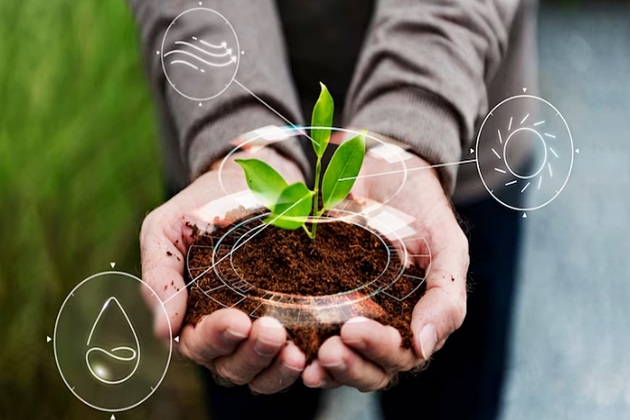934

According to FoodNavigator, agricultural and food production systems are facing increasing sustainability challenges and are under growing legislative and public pressure. A new digital platform called TRACT has been launched to enhance transparency in feed and food supply chains, from growers to retailers.
An initial set
Those behind the new tool, which was assessed by an initial set of external users, say it allows users to compare values and methodologies across multiple product categories in one place for the first time.
Agribusiness giants - Archer Daniels Midland Company (ADM), Cargill, Louis Dreyfus Company (LDC), and Olam - provided the initial funding and talent for TRACT and collaborated with other companies and non-profit organizations to develop the platform.
TRACT is now officially established as an independent company, with a leadership team consisting of directors from the food and agriculture sectors.
In its launch phase, the platform focuses on end-to-end traceability of coffee and palm oil supply chains.
Shortly thereafter, it will include sustainability information related to carbon emissions and initial reporting functionality for the EU Deforestation Regulation (EUDR) to enable users to start their journey to EUDR compliance. The platform will then expand to allow parameters related to deforestation, child labor risk, forced labor risk, and livelihood, along with new product categories, including soy, corn, cocoa, and cotton.
These new product categories will be added in 2024. The goal is to have over six categories on the platform by 2024 and more than 12 by 2025, according to Tom Oldfield, CSO of TRACT.
Industry-level challenge
"TRACT is unique because we're not just aligning methodologies; we're integrating them into a platform - allowing a common method for measuring, aggregating, and comparing data in food and agricultural supply chains across multiple product categories. This is new, and we believe it will be transformative for the sector.
"It is also the first time the industry has come together - pre-competitive collaboration - to develop an industry-level impact solution for this issue," he said to FeedNavigator.
Typical users of this platform would be sustainability specialists, controllers, general management, procurement managers at companies involved in food and agricultural supply chains, such as agricultural commodities and food ingredient suppliers, consumer goods companies, food service companies, and retailers.
The birth of an idea
The trigger for the development of the platform was confirmation from a group of agricultural commodity and food ingredient suppliers and buyers that such a tool was desperately needed, Oldfield reported.
"They saw that pre-competitive collaboration on how to measure sustainability performance would drive the industry forward. Olam initially convened a group of 12 leading companies (including the four investing companies but also large consumer brands) that were willing and able to work on this together."
Buyers and suppliers of agricultural commodities, products, and ingredients from over 20 companies were involved to some extent in the development of TRACT. The names of the companies are not yet disclosed, said the CSO.
"We also have an ecosystem of over 10 other stakeholder organizations, including non-profits, that have been involved in creating TRACT. We continue to meet with them and others to be part of the platform's further development. Some of those involved so far include: Proforest, AimProgress, Verité, and WRI."
Sustainability performance
TRACT applies comparable and aggregable methodologies so that sustainability performance measurement from multiple sources makes sense and can be easily compared and reported, said the CSO.
It involves sustainability performance measurement data and product-related perspectives exchanged between food and agriculture supply chain players, with the tool built on a robust traceability model that links data back to certain parts of the food and agricultural supply chains, from plantations and farm groups to processing, mills, refineries, and production, he explained.
"The platform is designed as a single shop for measuring sustainability, so it brings together multiple platforms/tools, like traceability, carbon footprint, and remote monitoring tools to use data in a more simplified way.
"By simplifying sustainability measurement and reporting, users will be able to focus more resources on delivering impact. A focus on improving sustainability performance would benefit multiple stakeholders."
Data sharing and ownership
Companies using the system own the data and decide what they want to upload and share, which may include third-party verified data, he said.
"We will add third-party verification for data uploaded to the platform. Users of the platform will be able to use that if they wish. TRACT will also have its own internal processes and computers audited by a third party to ensure the methodologies are correct and the data is protected," Oldfield confirmed.




